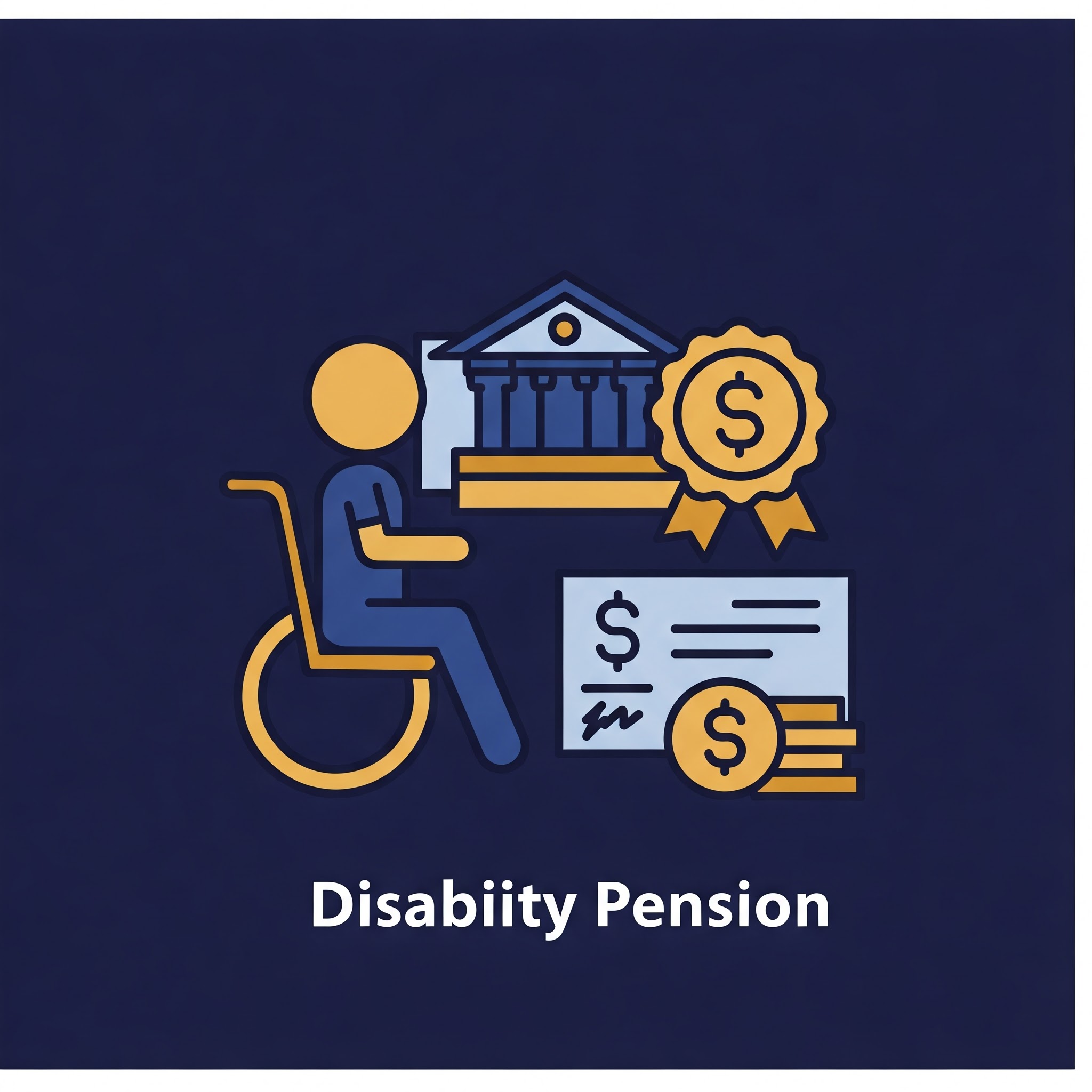Pension
Definition
Pension is a noun that refers to a regular payment made to a person, typically after retirement, as a benefit from employment or government service. It can also function as a verb, meaning to grant or pay a pension to someone.
Parts of Speech
- Noun
- Verb
Pronunciation
American English
- IPA Pronunciation: /ˈpɛn.ʃən/
- Respelling: PEN-shuhn
British English
- IPA Pronunciation: /ˈpɛn.ʃən/
- Respelling: PEN-shuhn
Etymology
The word "pension" originates from Latin "pensio," meaning "payment" or "weighing," derived from "pendere" (to weigh or pay). It entered Old French as "pension" and Middle English in the 14th century, initially referring to a regular payment or allowance.
Derivatives
- Pensioner (noun)
- Pensionable (adjective)
- Pensionless (adjective)
- Superannuation (noun)
- Repension (verb, rare)
Synonyms
- Annuity
- Retirement benefit
- Allowance
Antonyms
- None
Usage
The term "pension" is commonly used in the context of financial support for retirees. For example, "He receives a monthly pension after 30 years of service" or "The company decided to pension off some of its older employees."
Related Terms
- Retirement: The period of life after leaving employment.
- Superannuation: A retirement benefit scheme.
- Gratuity: A lump sum payment given upon retirement.
Detailed Definitions
Noun
- A regular payment for retirees: Refers to financial support given after retirement as a benefit from employment or government service.
- Example: "Her pension ensures a comfortable retirement."
- A financial allowance: Refers to periodic payments made to individuals under special circumstances, such as disability or injury.
- Example: "He receives a disability pension from the government."
Verb
- To grant a pension: Refers to providing someone with regular payments as part of a retirement or compensation plan.
- Example: "The organization pensioned off its retiring employees."
pension



🇨🇳 Mandarin Chinese
- 养老金 (Yǎnglǎojīn)
- IPA Pronunciation: /jɑŋ˧˥.lɑʊ˥˩.t͡ɕin˥/
- English Respelling: yang-lao-jin
- 退休金 (Tuìxiūjīn)
- IPA Pronunciation: /tʰweɪ̯˥˩.ɕjoʊ̯˥.t͡ɕin˥/
- English Respelling: tway-syou-jin
🇮🇳 Hindi
- पेंशन (Peṁśan)
- IPA Pronunciation: /peːnʃn̩/
- English Respelling: pehn-shun
- आवक (Āvak)
- IPA Pronunciation: /aːʋək/
- English Respelling: aah-vuk
🇪🇸 Spanish
- Pensión
- IPA Pronunciation: /penˈsjon/
- English Respelling: pen-syon
- Jubilación
- IPA Pronunciation: /xubi.laˈθjon/
- English Respelling: hoo-bee-la-thyon
🇫🇷 French
- Pension
- IPA Pronunciation: /pɑ̃.sjɔ̃/
- English Respelling: pahn-syon
- Retraite
- IPA Pronunciation: /ʁə.tʁɛt/
- English Respelling: reh-tret
🇸🇦 Modern Standard Arabic
- معاش (Mu'āsh)
- IPA Pronunciation: /mu'ʕaːʃ/
- English Respelling: moo-aash
- تقاعد (Taqa'ud)
- IPA Pronunciation: /taqaːʕud/
- English Respelling: taq-aa-ud
🇧🇩 Bengali
- পেনশন (Pēnśan)
- IPA Pronunciation: /pensʰɔn/
- English Respelling: pen-shon
- অবসর (Obasōra)
- IPA Pronunciation: /ɔbosor/
- English Respelling: oh-bo-shor
🇷🇺 Russian
- Пенсия (Pensiya)
- IPA Pronunciation: /ˈpʲensʲɪjə/
- English Respelling: pyen-see-ya
- Отставка (Otstavka)
- IPA Pronunciation: /ɐtˈstavkə/
- English Respelling: ot-stav-ka
🇵🇹 Portuguese
- Pensão
- IPA Pronunciation: /pẽˈsɐ̃w̃/
- English Respelling: pen-saown
- Aposentadoria
- IPA Pronunciation: /aposi̯tɐˈdɔɾiɐ/
- English Respelling: a-posi-ta-doria
🇮🇩 Indonesian
- Pensiun
- IPA Pronunciation: /pɛn.si.un/
- English Respelling: pen-see-oon
- Tunjangan
- IPA Pronunciation: /tun.dʒaŋ.an/
- English Respelling: toon-jahng-ahn
🇩🇪 German
- Pension
- IPA Pronunciation: /pɛnˈzi̯oːn/
- English Respelling: pen-zee-ohn
- Rente
- IPA Pronunciation: /ˈʁɛntə/
- English Respelling: ren-teh
🇯🇵 Japanese
- 年金 (Nenkin)
- IPA Pronunciation: /neŋ.kʲiɴ/
- English Respelling: neng-kin
- 退職金 (Taishokukin)
- IPA Pronunciation: /tai.ɕo.ku.kʲiɴ/
- English Respelling: tai-sho-ku-kin
🇻🇳 Vietnamese
- Lương hưu
- IPA Pronunciation: /luəŋ hɨə/
- English Respelling: luong huu
- Quỹ hưu trí
- IPA Pronunciation: /kwi hɨə tri/
- English Respelling: kwee huu tree
🇰🇷 Korean
- 연금 (Yeongeum)
- IPA Pronunciation: /jʌn.ɡʌm/
- English Respelling: yeon-geum
- 은퇴금 (Eunteogeum)
- IPA Pronunciation: /ɯn.thʌ.ɡʌm/
- English Respelling: eun-teo-geum
🇹🇷 Turkish
- Emekli maaşı
- IPA Pronunciation: /e.me.kli ma.a.ʃɯ/
- English Respelling: eh-mek-lee mah-ash
- Bağ-Kur
- IPA Pronunciation: /baːˈkuɾ/
- English Respelling: bah-koor
🇵🇰 Urdu
- پنشن (Pension)
- IPA Pronunciation: /pɛn.ʃn̩/
- English Respelling: pen-shun
- تقاعد (Taqa'ud)
- IPA Pronunciation: /t̪ɑː.qɑː.ʊd̪/
- English Respelling: tah-qaa-ud





